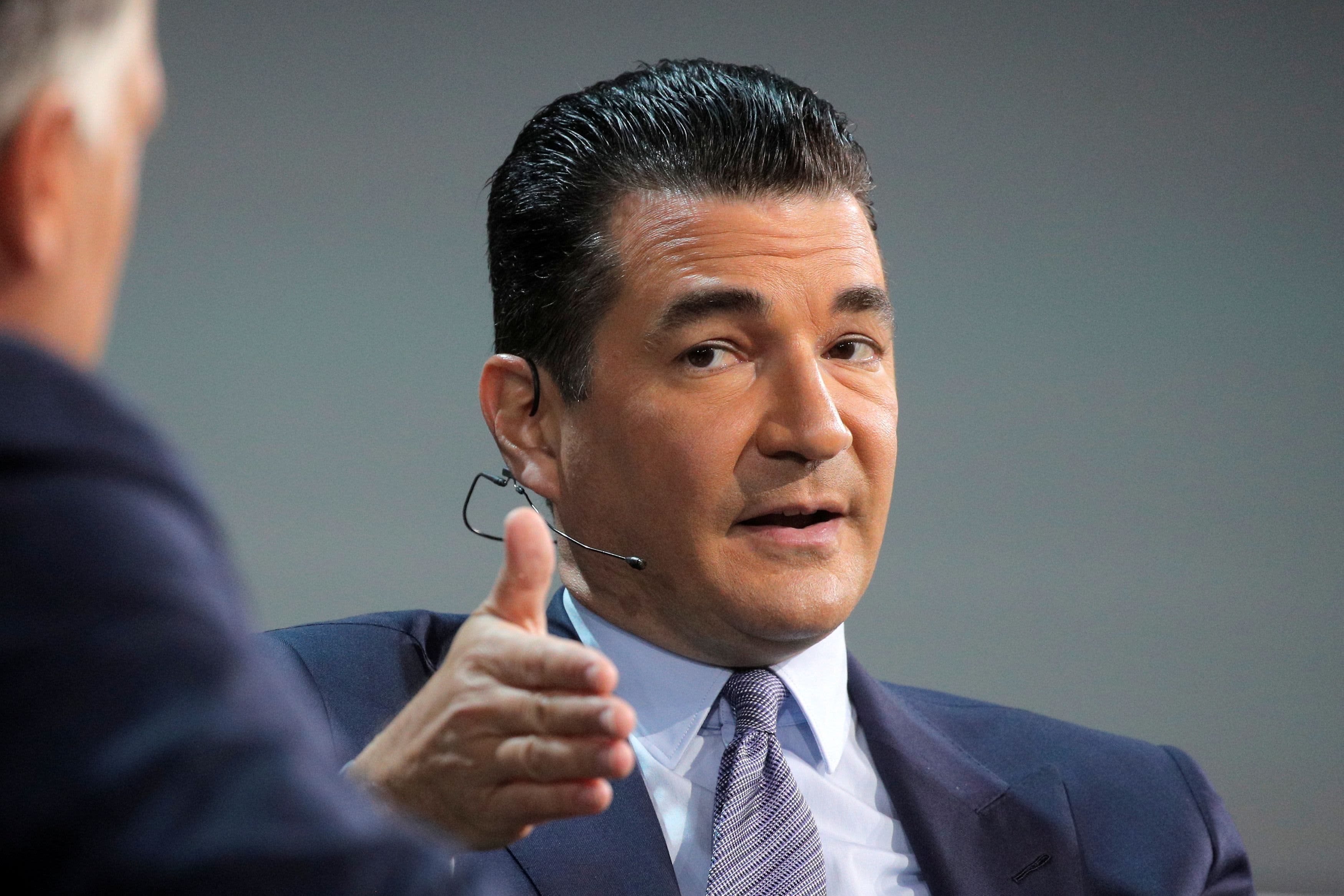Former Food and Drug Administration Commissioner Dr. Scott Gottlieb said U.S. intelligence agencies should be tasked with investigating emerging public health threats overseas to combat future disease outbreaks.
Gottlieb, who also sits on Pfizer‘s board, told CNBC’s “Squawk Box” that the public has lost trust in U.S. health agencies and called for more funding for the Centers for Disease Control and Prevention.
He said that identifying problematic viruses abroad and equipping the CDC with better crisis mitigation resources would improve the nation’s ability to counter any new contagions that arise.
“I think going forward we’re not going to just be able to depend on countries voluntarily sharing information,” Gottlieb said in an appearance promoting his book, “Uncontrolled Spread.” “We’re going to have to go in and have the capacity to collect it and to monitor for these things, and that means getting our foreign intelligence services much more engaged in the public health mission globally.”
World Health Organization officials have said they weren’t sure China disclosed all its data on Covid’s origins. Gottlieb suggested that countries today are less forthcoming with disease details because they fear being isolated. He noted that the U.S. has avoided bringing intelligence agencies into international public health issues because the CDC worried that “anyone wearing a white coat overseas would be perceived to be a spy.”
Besides treating outbreaks as national security matters, Gottlieb said that the CDC was ill-prepared for a widespread rollout of Covid tests and vaccines at the beginning of the pandemic. The CDC’s changing messaging around Covid prevention tactics also undermined the public’s faith in the agency, Gottlieb said.
But the proper resources, competencies and logistical management could help the CDC better handle public health emergencies, Gottlieb said.
“I think coming out of this pandemic, a lot of people have lost confidence in the public health officials,” Gottlieb said. “They felt that guidance wasn’t well informed, it wasn’t well articulated, it wasn’t distributed in a way that we could assimilate it into our lives.”
The pandemic has highlighted the systemic bias in health-care facing people of color as well, Gottlieb said, including unequal access to Covid testing and technology. Improving the country’s outbreak preparedness doesn’t just entail bolstering the CDC and disease surveillance – it involves finding solutions for disparities in health-care and structural disadvantages permeating American society, Gottlieb said.
“If we’re going to make ourselves more resilient going forward to these kinds of public health crises, we’re going to have to address those inequities and do more to make sure that we’re getting adequate health-care to people who have historically been locked out of those opportunities,” Gottlieb said.
Disclosure: Scott Gottlieb is a CNBC contributor and is a member of the boards of Pfizer, genetic testing start-up Tempus, health-care tech company Aetion and biotech company Illumina. He also serves as co-chair of Norwegian Cruise Line Holdings′ and Royal Caribbean’s “Healthy Sail Panel.”
